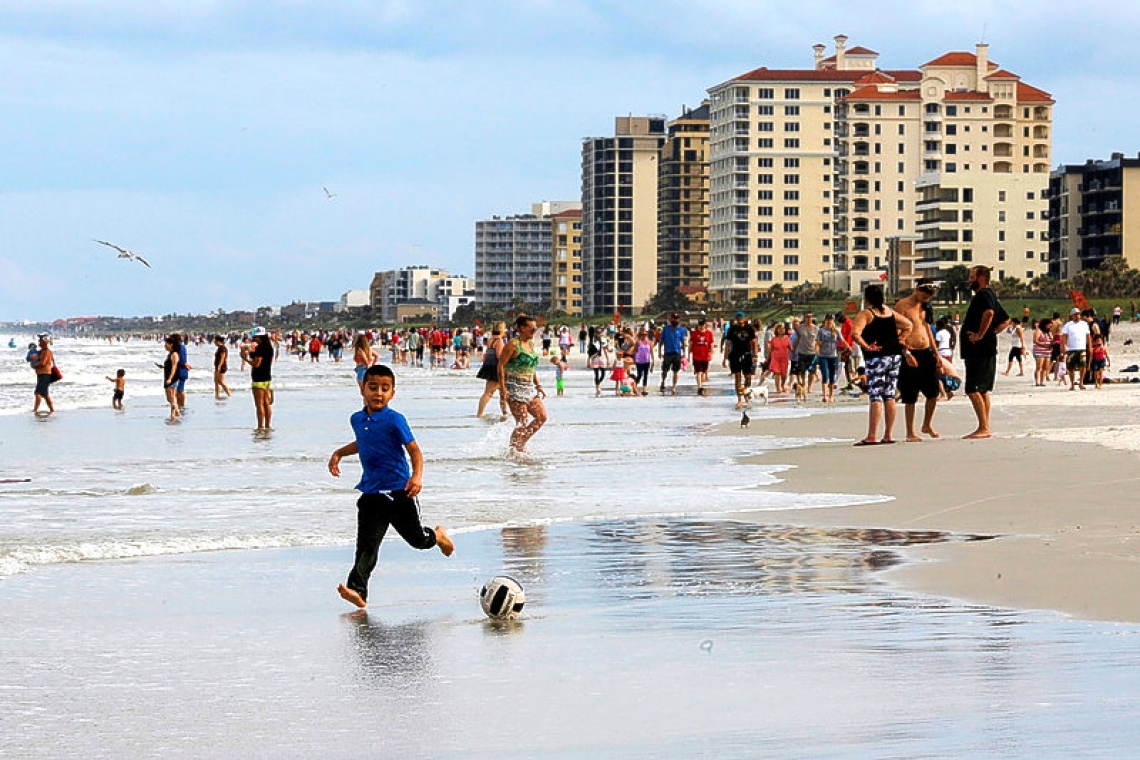WASHINGTON--Governors in U.S. states hardest hit by the novel coronavirus sparred with President Donald Trump over his claims they have enough tests and should quickly reopen their economies as more protests are planned over the extension of stay-at-home orders.
New York continued to see hospitalizations decline to 16,000 from a high of 18,000, and the number of patients being kept alive by ventilators also fell. There were 507 new deaths, down from a high of more than 700 a day.
"If the data holds and if this trend holds, we are past the high point and all indications at this point are that we are on a descent," Governor Andrew Cuomo said at a daily briefing, while urging residents to continue social distancing. "We showed you can control the beast. But it's only half time. We still have to make sure we keep the beast down."
To get a baseline of how many people were infected with the novel coronavirus, Cuomo said the state would do the most aggressive anti-body testing in the nation in the next week using a random sample. New York will test 2,000 people a day or 14,000 per week out of the 19 million residents in the state.
The United States has by far the world's largest number of confirmed coronavirus cases, with more than 740,000 infections and over 40,000 deaths. It took the United States 38 days after recording its first fatality on Feb. 29 to reach 10,000 deaths on April 6 but only five more days to reach 20,000 dead, according to a Reuters tally. The United States' toll rose to 40,000 from 30,000 in four days after including untested but probable COVID-19 deaths reported by New York City.
Cuomo, along with other governors, are clamoring for more tests to detect new infections as well as to test for immunity as part of their plans to reopen their states. Republican Governor Larry Hogan of Maryland during a CNN interview said claims by Trump and Vice President Mike Pence that states have plenty of tests were "just absolutely false."
Democratic Governor Ralph Northam of Virginia told CNN the idea states have enough tests was "delusional."
The region of Maryland, Virginia and Washington D.C. is still seeing increasing cases. New Jersey reported on Sunday that its new cases rose by nearly 3,900, the most in more than two weeks. Boston and Chicago are also emerging hot spots with recent surges in cases and deaths.
Several states, including Ohio, Texas and Florida, have said they aim to reopen parts of their economies, perhaps by May 1 or even sooner. The governors of Michigan and Ohio on Sunday said they could double or triple their testing capacity if the federal government helped them acquire more swabs and reagents, chemicals needed as part of the testing process.
Trump's guidelines to reopen the economy recommend a state record 14 days of declining case numbers before gradually lifting restrictions. Yet the Republican president appeared to encourage protesters who want the measures removed sooner with a series of Twitter posts on Friday calling for them to "LIBERATE" Michigan, Minnesota and Virginia, all run by Democratic governors.
Governor Jay Inslee of Washington redoubled his attacks on Trump's call to "liberate" states, saying the president was encouraging people to violate state laws on self-isolating. "These orders actually are the law of these states," he said. "To have an American president encourage people to violate the law, I can't remember any time during my time in America where we have seen such a thing."
Demonstrations to demand an end to stay-at-home measures that have pummelled the U.S. economy have erupted in a few spots in Texas, Wisconsin and the capitols of Ohio, Minnesota, Michigan and Virginia. More than 22 million Americans have filed for unemployment benefits in the past month.
Trump had touted a thriving economy as the best case for his re-election in November. On Saturday, several dozen protesters gathered in the Texas capital of Austin chanting "USA! USA!" and "Let us work!"
In Brookfield, Wisconsin, hundreds of demonstrators cheered as they lined a main road and waved American flags to protest at the extension of that state's "safer at home" order. The demonstrators mostly flouted the social-distancing rules and did not wear the face masks recommended by public health officials.
U.S. lawmakers are very close to an agreement on approving extra money to help small businesses hurt by the coronavirus pandemic and could seal a deal as early as Sunday, congressional and Trump administration officials said.
Congress established the programme last month as part of a $2.3 trillion coronavirus economic relief plan, but it has already run out of money.







